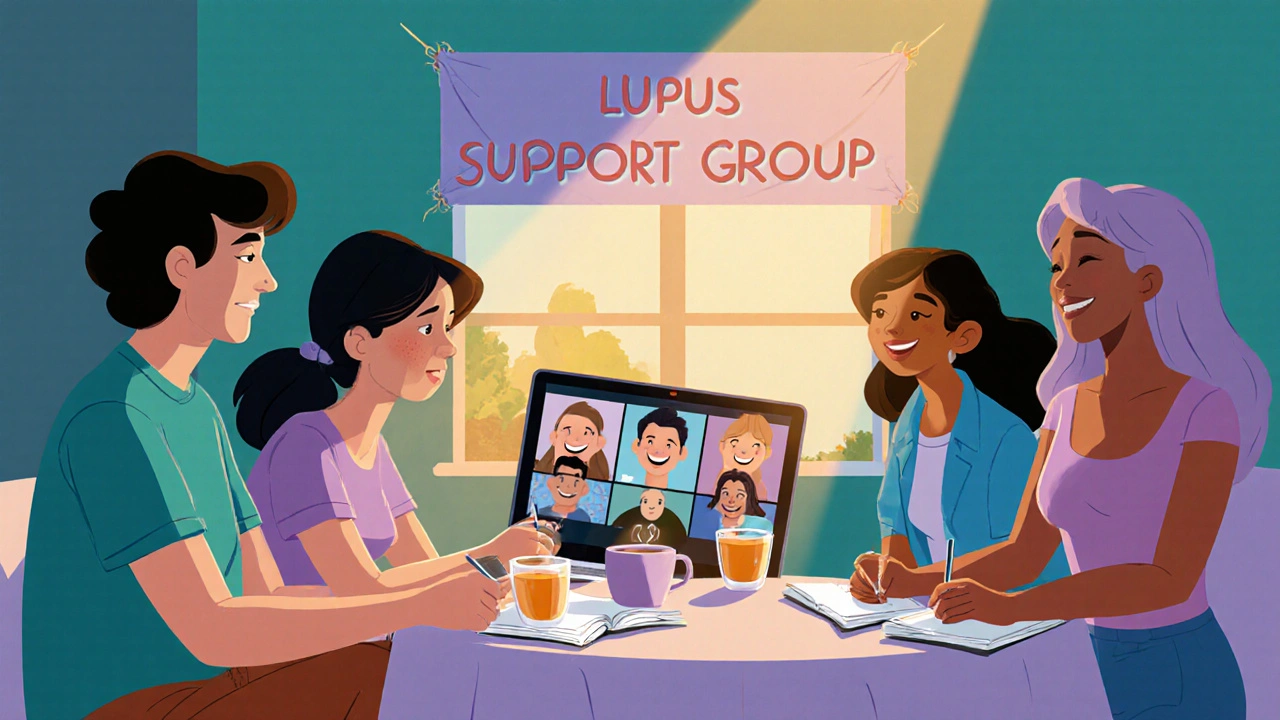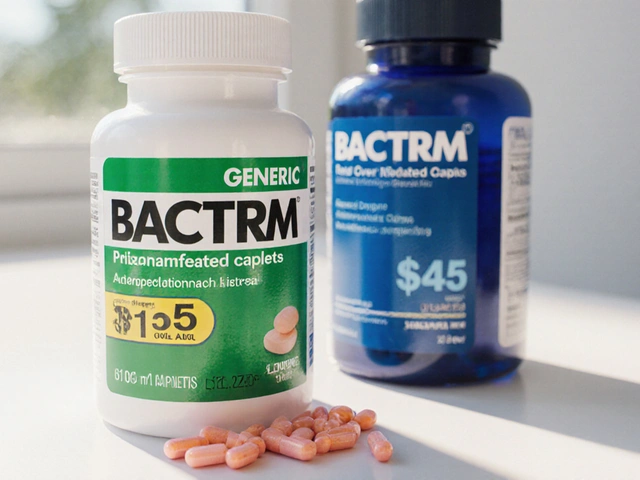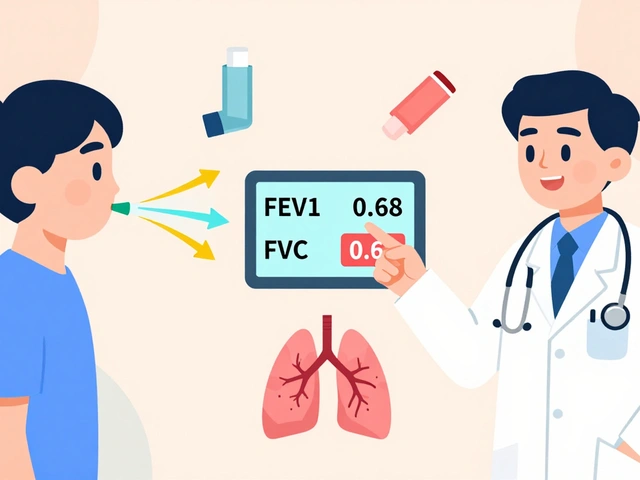Living with discoid or systemic lupus can feel isolating, especially when symptoms flare up and everyday life gets thrown off balance. You might wonder if there’s a way to break that silence, share real‑world tips, and get emotional lift from people who truly get it. That’s where lupus support groups step in, turning a solo journey into a shared experience.
Key Takeaways
- Support groups improve mental health, medication adherence, and overall quality of life for lupus patients.
- Discoid lupus and systemic lupus have overlapping but distinct support needs; choose a group that matches your condition.
- Both in‑person meet‑ups and online forums are viable options; each offers unique benefits.
- Starting or joining a group is easier than you think - local foundations, hospitals, and social platforms provide ready‑made pathways.
- Active participation, clear boundaries, and a respectful environment are the keys to getting the most out of any group.
Before we dig into the how‑to, let’s set the stage with clear definitions of the two lupus forms most readers are grappling with.
Discoid Lupus Erythematosus is a form of cutaneous lupus that produces red, disc‑shaped lesions, usually on the face, scalp, or ears. The rash can scar, and sun exposure often worsens it, but the disease rarely attacks internal organs.
Systemic Lupus Erythematosus is the classic, multi‑system autoimmune condition that can involve skin, joints, kidneys, brain, and heart. Flares may bring fever, fatigue, joint pain, and organ‑specific complications, making management especially complex.
Why Support Groups Really Help
Think about the last time you learned a new trick from a friend. That “aha” moment happens because you trusted the source and could ask follow‑up questions instantly. Support groups create the same instant learning loop, only the teacher is a community of peers who live the disease daily.
- Emotional cushioning: A study by the Lupus Foundation of America (2023) found that members of active support groups reported a 30% reduction in depression scores compared with isolated patients.
- Practical tips: From sunscreen hacks for discoid lesions to medication timing tricks that reduce side‑effects, real‑world advice travels faster than medical literature.
- Empowerment: Seeing someone successfully manage a kidney flare or pregnancy builds confidence that you, too, can navigate similar challenges.
- Medical literacy: Groups often invite rheumatologists or dermatologists for Q&A sessions, turning complex jargon into plain language.
Tailoring Support to Your Lupus Type
Discoid lupus patients usually seek skin‑focused guidance-sun protection routines, scar‑minimizing creams, and cosmetic options. Systemic lupus sufferers need broader discussions: kidney health, cardiovascular risk, fertility concerns, and medication side‑effects.
When evaluating a group, ask:
- Does the group’s primary conversation revolve around skin care, systemic organ monitoring, or both?
- Are members predominantly diagnosed with discoid, systemic, or a mix of lupus subtypes?
- Is the facilitator knowledgeable about the specific challenges of each form?
A mixed group can be enriching-different perspectives spark new ideas-but it may also dilute the focus you need. Choose what feels most relevant to your current health questions.

Finding the Right Group - Step‑by‑Step
Here’s a practical checklist you can follow right now:
- Start local: Search for "lupus support group Perth" or "Western Australia lupus meet‑up". The Australian Lupus Foundation (ALF) maintains a directory of state‑based groups.
- Check hospital affiliations: Many rheumatology clinics host monthly peer sessions. Call the patient liaison office at your hospital.
- Explore national organizations: The Lupus Foundation of America (U.S.) and ALF both run virtual workshops that accept international participants.
- Scan online platforms: Reddit’s r/Lupus, Facebook’s "Lupus Community" groups, and PatientsLikeMe offer moderated forums.
- Read reviews: Look for recent posts about meeting frequency, facilitator style, and confidentiality policies.
- Attend a trial session: Most groups allow a guest visit. Bring a notebook, ask about the group's code of conduct, and gauge the vibe.
In‑Person vs. Online - What’s Best for You?
| Aspect | In‑Person Meet‑Ups | Online Forums / Virtual Groups |
|---|---|---|
| Social connection | High - face‑to‑face contact builds strong bonds quickly. | Medium - video calls simulate presence, but texting can feel impersonal. |
| Accessibility | Requires travel; may be tough during flares or for remote residents. | Instant global access; works when mobility is limited. |
| Privacy | Controlled environment; easier to enforce confidentiality. | Depends on platform security; some users worry about data leaks. |
| Expert involvement | Often includes live talks from local specialists. | Webinars can feature world‑renowned doctors but may be less interactive. |
| Cost | May incur venue fees or travel expenses. | Usually free; some platforms require a modest subscription. |
Both formats complement each other. If you can, join a local meet‑up for the human touch and supplement it with an online forum for day‑to‑day questions.
Getting the Most Out of Your Group
- Show up consistently: Regular attendance signals commitment and helps you build trust.
- Share, but protect: Offer your story, yet keep medical records private unless you’re comfortable.
- Ask specific questions: Instead of "How do I manage flares?", try "What sunscreen works best with my topical steroid?".
- Take notes: Jot down dosing tips or diet recommendations; you’ll thank yourself later.
- Volunteer: Facilitating a session or organizing a fundraiser deepens your connection and gives back.

Starting Your Own Support Group
If you can’t find a group that fits, creating one is surprisingly doable.
- Define the focus: "Discoid Lupus Skin Care Circle" or "Systemic Lupus Life‑Balancing Club".
- Choose a venue: a community hall, a local library meeting room, or a Zoom link.
- Partner with a reputable organization: the Australian Lupus Foundation can provide flyers and a facilitator guide.
- Set ground rules: confidentiality, respectful language, and time limits for each speaker.
- Promote: post on hospital bulletin boards, local Facebook groups, and primary‑care waiting rooms.
- Gather feedback after the first few sessions and tweak the format accordingly.
Even a small group of four or five committed members can become a lifeline.
Resources Worth Bookmarking
- Australian Lupus Foundation (ALF): State‑by‑state directory, downloadable coping‑toolkits, and quarterly webinars.
- Lupus Foundation of America (LFA): Online forums, research updates, and a “Living with Lupus” podcast.
- PatientsLikeMe: Data‑driven community where you can compare symptom trends.
- Reddit - r/Lupus: Active moderation, daily threads, and AMAs with rheumatologists.
- National Health Service (UK) - Lupus Support: Free printable handouts on sun protection and medication management.
Mini FAQ - Your Quick Answers
Can I join a lupus support group if I’m in remission?
Absolutely. Even when symptoms are low, staying connected helps you maintain coping skills and spot early signs of a flare.
Are online lupus forums safe for sharing personal health info?
Choose platforms with clear privacy policies, use a pseudonym if you prefer anonymity, and avoid posting exact medication dosages or identifiers that could link back to you.
How often should a support group meet?
A monthly cadence works for most busy adults, but some groups add a mid‑month virtual check‑in for urgent questions.
What if I feel uncomfortable sharing my story?
You’re not forced to speak. Listening alone can still provide valuable insights and emotional relief.
Do support groups help with medication adherence?
Yes. Peers often share reminder tricks, side‑effect management tips, and encouragement that keep you on track with your regimen.
Whether you’re newly diagnosed or have been managing lupus for years, a support group can be the missing puzzle piece that turns information into action, fear into confidence, and loneliness into community. Take the first step today-search, reach out, and watch how a shared story can change your health journey.



 Medications
Medications





Roberta Makaravage
October 17, 2025 AT 02:19Honestly, the evidence is crystal clear: support groups are a lifeline for lupus warriors 🌟. If you think you can survive solo, you’re overlooking the communal wisdom that ancient philosophers prized. The synergy of shared anecdotes fuels resilience in ways pharmacology alone cannot 🌱. Remember, empathy is the ultimate immunomodulator, and you’ll find it in every heartfelt story exchanged. So, dive in, absorb, and let the collective spirit elevate your journey 🚀.
Lauren Sproule
October 20, 2025 AT 06:19i totally get u n the hustle of finding the right group.. it can be crazy but sooo worth it~ i always look for places where ppl are kind and no drama
keep an open heart and dont be afraid to try a few meet‑ups
CHIRAG AGARWAL
October 23, 2025 AT 10:19meh, these articles always sound like a sales pitch for "feeling good". sure, support groups exist, but do they really change the medical outcomes? I'd rather see hard data than feel‑good anecdotes. still, if you need a place to vent, go ahead, but keep your expectations low.
Rebecca Mitchell
October 26, 2025 AT 13:19Sounds like a waste of time.
Katie Henry
October 29, 2025 AT 17:19Dear fellow lupus patients, it is with great enthusiasm that I encourage you to explore a support group. The camaraderie found therein can profoundly uplift morale and fortify adherence to treatment regimens. A structured gathering provides a platform for exchanging practical strategies, from sunscreen selection to medication timing. Moreover, the collective experience fosters a sense of purpose and diminishes the isolation that often accompanies chronic illness. I implore you to seize this opportunity and witness the transformative power of community.
Joanna Mensch
November 1, 2025 AT 21:19They’re watching every chat, you know? The data could be used against us.
RJ Samuel
November 5, 2025 AT 01:19Ah, the kaleidoscope of lupus narratives! While many chant the choir of optimism, I find myself asking whether the echo merely drowns out dissenting notes. Picture a garden where every flower is the same hue; isn’t diversity the true essence of healing? Hence, I champion mixed‑type groups, not for conformity, but for the riotous symphony they produce. Still, each seeker must weigh the melody against the dissonance they can tolerate.
Chris Beck
November 8, 2025 AT 05:19Support groups are good. They help people. They give info. We need them. They are part of what makes a strong community.
James Falcone
November 11, 2025 AT 09:19Look, I’m not here to sugarcoat anything-these groups are a decent idea but don’t expect miracles. You’ll still have to fight the disease on your own. Grab the help if it’s free, but keep your eyes on the real battle.
Valerie Vanderghote
November 14, 2025 AT 13:19Let me tell you why diving into a lupus support group is not just a casual recommendation but a profound metamorphosis of the soul, body, and mind. First, the emotional sustenance you receive from strangers who suddenly become your chosen family is akin to a phoenix rising from the ashes of despair, a rebirth that infuses you with renewed vigor. Second, the practical tips exchanged-whether it is the optimal SPF 50+ sunscreen brand that doesn’t exacerbate your lesions or the timing of your hydroxychloroquine to minimize gastrointestinal upset-are gold nuggets that no textbook can ever provide, and they come wrapped in empathy. Third, the sense of accountability that blossoms when you know a group depends on your active participation creates a self‑discipline that bolsters medication adherence, something that even the most diligent rheumatologists applaud. Fourth, the opportunity to witness peers navigating complex life events, such as pregnancy or career changes, provides a living roadmap that demystifies the overwhelming unknowns. Fifth, the shared victories, no matter how small-a week without a flare, a skin lesion that finally fades-amplify your own confidence, turning the tide of self‑doubt into a wave of empowerment. Sixth, these gatherings often invite medical professionals for Q&A sessions, allowing you to ask the “dumb” questions without fear of judgment, thereby bridging the gap between clinical jargon and lived experience. Seventh, the community’s collective resilience serves as a buffer against depression, a common comorbidity that can be as debilitating as the physical symptoms themselves. Eighth, the simple act of listening to another’s story can trigger insights about your own condition that you never considered, a serendipitous learning curve. Ninth, the networking possibilities-whether it’s finding a compassionate caregiver or a research study participant-can open doors that would otherwise remain closed. Tenth, the ritual of attending meetings establishes a routine, a beacon of normalcy amidst the chaos of flares. Eleventh, you learn to set healthy boundaries, an essential skill for preserving mental health while staying supportive. Twelfth, the digital forums extend this support globally, ensuring you never feel isolated even on the toughest days. Thirteenth, the shared humor-those memes about sore joints or unexpected rashes-lightens the load, reminding you that laughter truly is medicine. Fourteenth, the act of giving back, perhaps by mentoring a newcomer, cultivates a sense of purpose that counters the victimhood narrative. Fifteenth, the cumulative effect of all these elements creates a holistic environment where healing is not a solitary trek but a communal pilgrimage, and that is why support groups matter beyond any statistical significance. Embrace them, invest in them, and watch your journey transform from a solitary struggle to a shared triumph.
Michael Dalrymple
November 17, 2025 AT 17:19In the tradition of mentorship, I urge you to consider the strategic advantage of joining a cohort of peers who confront similar health challenges. By engaging in structured dialogue, you acquire adaptive coping mechanisms that align with evidence‑based practices. Moreover, the reciprocal nature of support groups fosters a bidirectional flow of knowledge, wherein each participant both contributes and benefits. This symbiotic exchange reinforces adherence to therapeutic regimens, a cornerstone of disease management. I commend those who take this proactive step toward holistic well‑being.
Nickolas Mark Ewald
November 20, 2025 AT 21:19I think the points made are solid and helpful. It’s great to see the community sharing resources.
Tom Green
November 24, 2025 AT 01:19Hey all, just a quick reminder that the best groups are the ones where everyone feels welcome, regardless of whether they have discoid or systemic lupus. Keep the conversation respectful and inclusive, and you’ll find a supportive space that truly lifts you up.